The Chef’s Legacy: What will we leave to future generations?
Five great mentors answer to the question no one asks, structuring the rite of identity passage in the kitchen.

The restaurant industry isn’t really the most forward-thinking in terms of education and welfare, and we know it. We've heard stories about the hard physical and psychological conditions of staff members in a kitchen for so long, and very few enlightened establishments properly focus on education. After all the legacy of a chef, their heritage, is what keeps fine-dining dynamic and in continuous evolution. We always question ourselves around the real meaning of “education”, around the values we are leaving to new generations and about the kind of industry they will inherit. To answer, among all the great educators and mentors in the world, we selected five of them: Dominique Crenn, Enrico Crippa, Franco Pepe, Niko Romito and Gaetano Trovato.
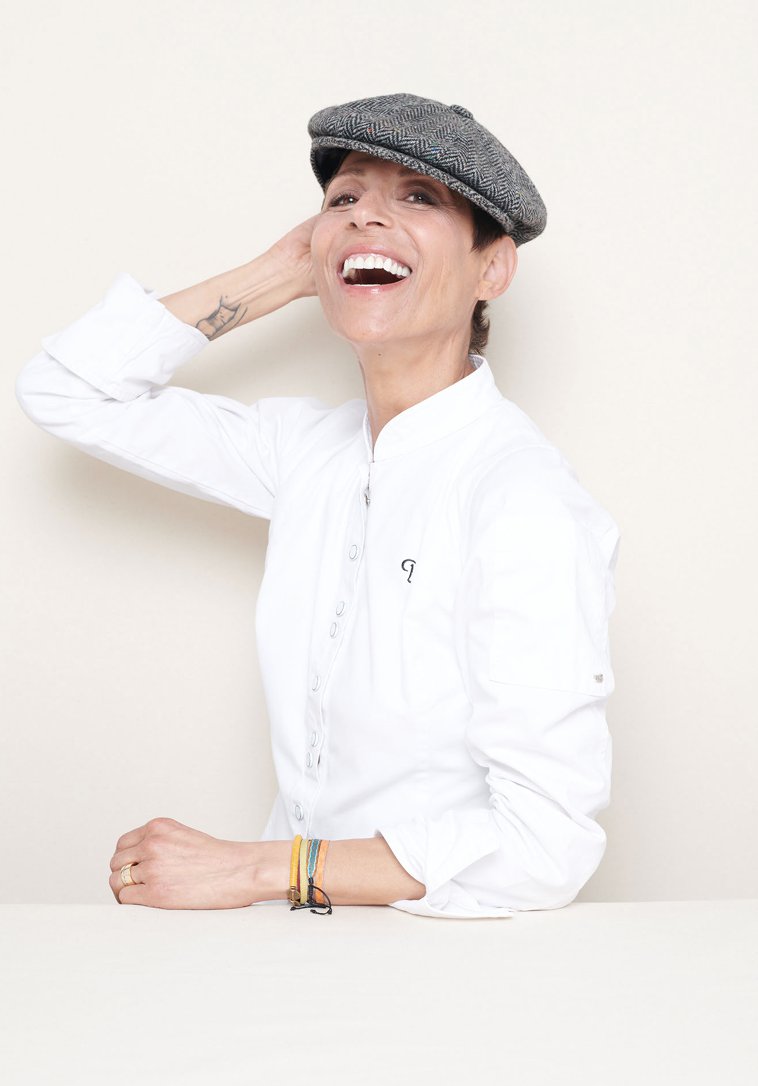
Chef Dominique Crenn/Courtesy
Dominique Crenn - Atelier Crenn (San Francisco)
Dominique Crenn is the outstanding mind behind the San Francisco 3 Michelin stars Atelier Crenn. The French chef, also featured in the second season of Chef’s Table, represents a pivotal figure in the contemporary restaurant world. Her commitment to gender equality is second to none in the industry and managed to significantly change this still too retrograde environment.
“I think the education of a young chef must start by allowing them to be themselves, teaching then the fundamentals of how a kitchen operates. All of my cooks begin with basics to eventually learn to cook on the line. A mentor can provide a supportive relationship and share wisdom but it is up to the mentee on how they take that advice. There are major life lessons to be learned in a kitchen and it is very difficult work. A good mentor will support but allow you to find your own way through life. As contemporary chefs we are very in touch with where food comes from and this is an especially important idea to me. As well as learning about our similarities and differences and really understand that we are all humans and food is one thing that we all have in common. But there is so much more to be done to fix our food systems. We need to get back to real food and I would also like to see the industry work more to support communities facing food insecurities. I currently partner with a program in the United States called Rethink Food and we are working to make sure that no food goes to waste and that all people receive healthy meals.”
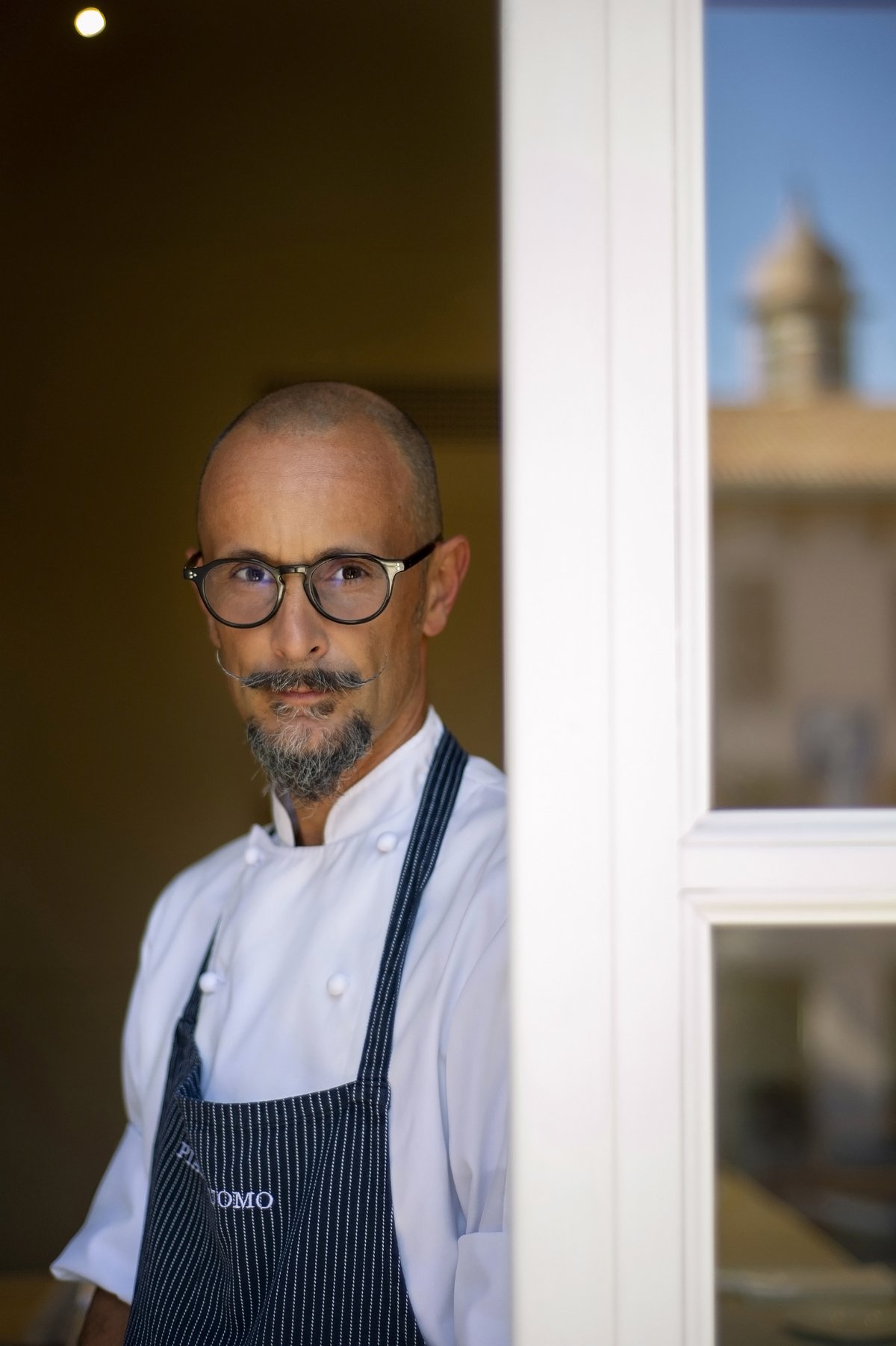
Chef Enrico Crippa/Courtesy
Enrico Crippa - Piazza Duomo (Alba)
Enrico Crippa has been recognized as one of the world’s leading chefs thanks to his fabulous 3 Michelin starred Piazza Duomo, located in Alba, the Northern-Italy white truffle land. With the endless list of herbs, flowers and vegetables in his farm, Crippa represents a solid pillar for an increasingly more sustainable industry.
“The young cooks approaching our kitchen are immediately trained to curiosity, the most powerful tool to unlock an omnivore approach towards different food cultures. This is one of the last jobs keeping its craftsmanship component, therefore you must educate them to respect other humans and our Planet, teach them a job and treat them as if they were ancient ateliers assistants. A good mentor will then allow his students to absorb his knowledge only through quite long stages, whilst trainees will need huge hunger to avoid copycats. I believe great chefs are nowadays managing to transmit awareness and ethical values around the environmental problem. There must be a sense of perfect harmony between respecting your land and surprising your guests. This is historically a though job, that’s why we must rediscover humanity in the kitchens as well as the community sense that always characterized food. Restaurants could be more useful as local land windows rather than companies.
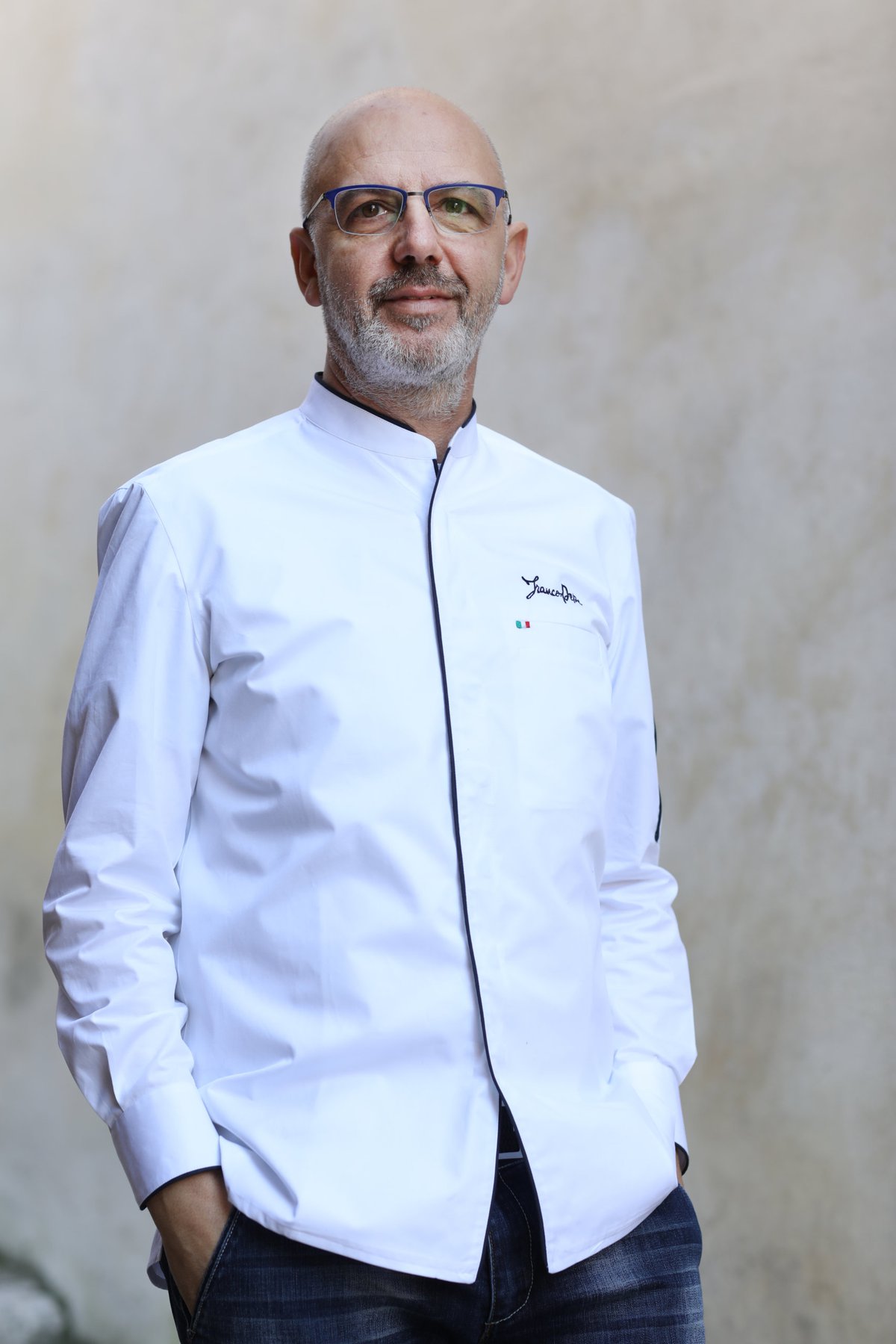
Franco Pepe/Courtesy
Franco Pepe - Pepe In Grani (Caiazzo, Caserta)
Franco Pepe is probably the world’s most renowned pizza master. The man who created Pepe in Grani, hidden in the ancient town of Caiazzo (not far from Naples), opened the pizza world to a whole new level of refinement and health, without deleting its playful and popular essence. The project led him to become the pivotal figure in the contemporary pizza research activity, with more than 40 dedicated young professionals helping him every day. His 25 years old son Stefano Pepe is with him in the kitchen and creates new pizzas instantly becoming hits.
“In the pizza world there is still a huge lack in terms of education. No institutional or popular schooling project exists, if not carried out privately by masters. This drives us, mentors, to be responsible for the whole education of the young pizzaiolo. The problem is that every pizza master has a personal style and know-how, which may be totally different from another one. Therefore, without a basic knowledge of the different styles and processes, it is really up to the young master to “learn without being absorbed” and use the skills he learnt to carry out his very own identity. And undoubtedly today, the pizza world is more scientific than ever. We control every aspect of the dough, of the cooking process and we can replicate almost the same product all the time: it is our signature, as well as a sign of total control, to put that small human mistake. But most importantly we see great expertise around nutrition, product balance and health resonance. Basically we unlocked the taboo of the [only] Neapolitan pizza, opened our mind to different styles and countries with the reference point of quality rising.”
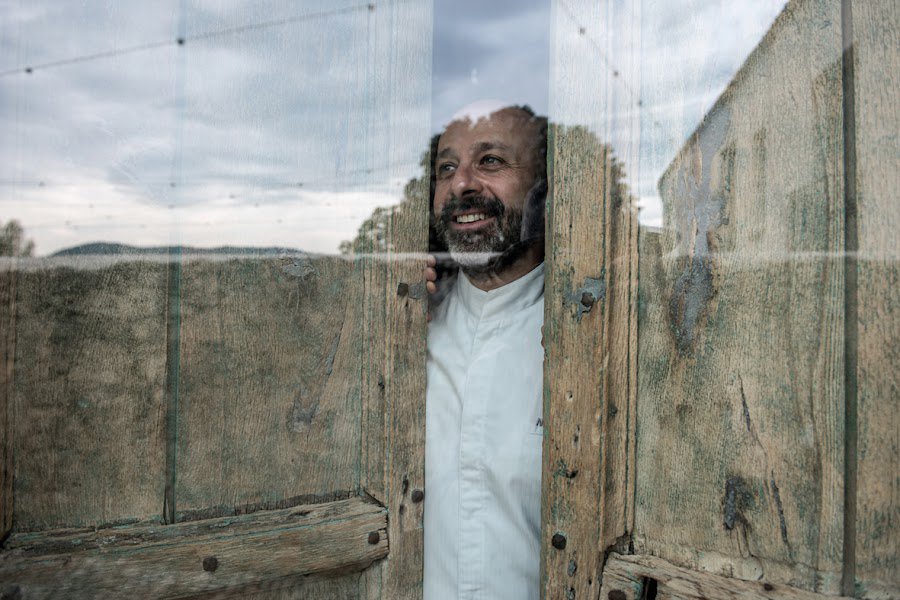
Chef Niko Romito/Courtesy
Niko Romito - Reale (Castel di Sangro, L'Aquila)
Niko Romito is the brilliant Chef and owner of the 3 Michelin stars Reale Casadonna in Castel di Sangro, Abruzzo region. Romito, in the last few years, developed various parallel projects centered around the concept of health, with a particular emphasis on education. He indeed, since many years, carries out a series of high profile courses in which professional chefs are formed through his philosophy; moreover, this year, he will start the development of his “Campus”, the revolutionary food center aiming to connect academic experts of science and nutrition, industries and students.
“I believe that the most important aspect to work on nowadays turns around health. We need to teach how to increase people’s everyday life through healthy food and advanced technologies. Food can be part of the daily care routine and should be seen almost as a medicine. The concept of “Feeding” is now more than ever a mix of necessity, taste, esthetics and cultural progression, finding a compromise between pleasure and wellness. And this is one of those key concepts contemporary chefs must leave to future generations, who will be the real ambassadors of creative exercises subordinated to ethics. An idea which should eventually be extended to more popular formats and industrialized productions, in order to raise the average quality line for the masses. The balance of every industry is today passing through this mind-body balance and chefs should in my opinion be the first trailblazers promoting it.”
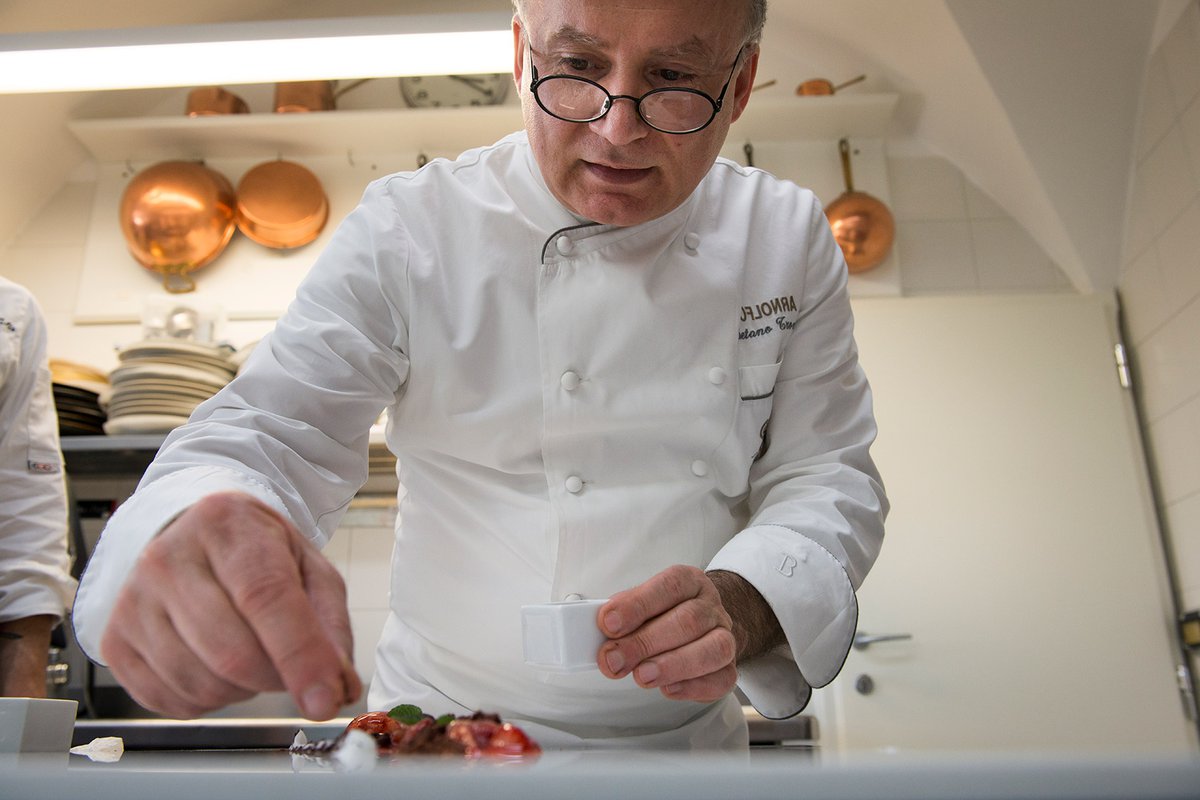
Chef Gaetano Trovato/Courtesy
Gaetano Trovato - Arnolfo (Colle Val D'Elsa, Siena)
Gaetano Trovato settled himself in the heart of Tuscany, opening the 2 Michelin stars Arnolfo. Apart from the breathtaking view and the exquisite cuisine, Chef Trovato boasts a high number of successful pupils, gently nicknamed Arnolfini. Thanks to his important studies, his open minded preservation of traditions and his elegant attitude, he perfectly fits as a great mentor for new generations.
“I think that, nowadays, the topic of mentors keeping secrets is thankfully almost archived. I always focused myself on sharing my knowledge with young chefs: they are the future and the more they know, the more they can shape a better world. Luckily the industry, despite being still far from idyllic perfection, is increasingly improving towards equality and fairness and young chefs will hopefully give the last boost to never go back. To them, we managed to leave the importance of local cuisine, which is definitely more sustainable, it protects lands biodiversity, provides offer variety and opens the market to smaller producers and forgotten products. To do this you need dedication and research but you need also to spend at least one-two years experiencing a chef’s philosophy to then maybe pass somewhere else and so have a vaste map to orient yourself and forge your own path.”
